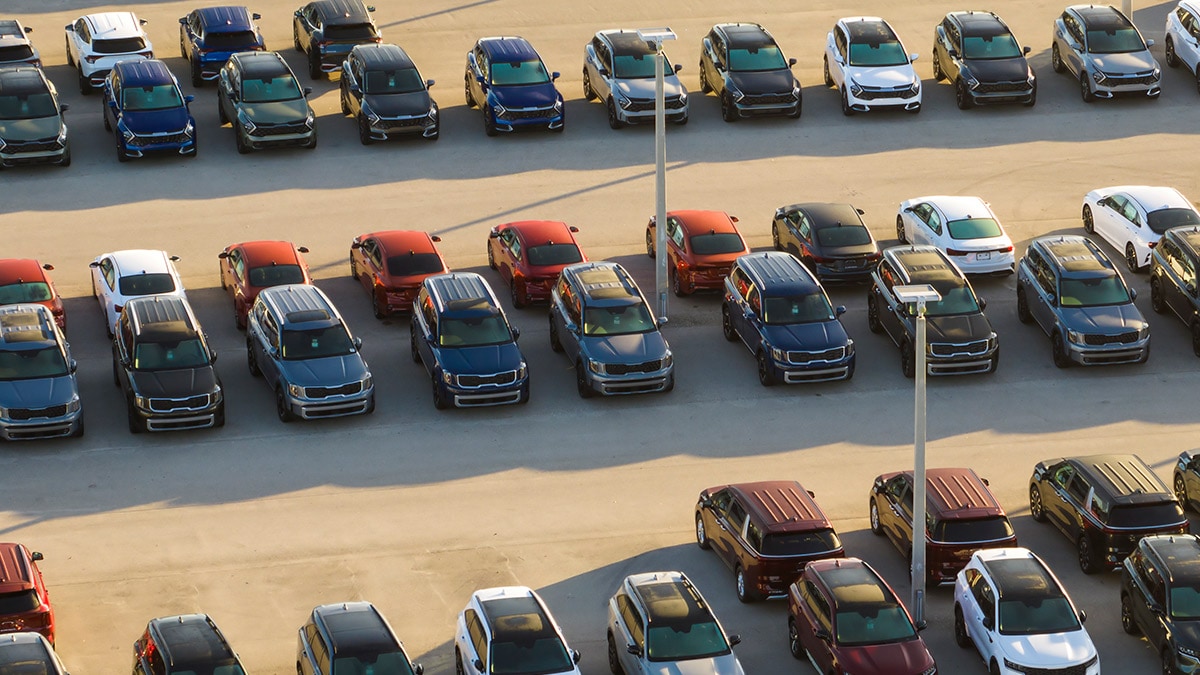The 2024 election has America’s car dealers worried about their future.
Cox Automotive’s latest Dealer Sentiment Index finds dealers pessimistic about selling cars as the third quarter approaches its end.
About the Survey
Cox Automotive is the parent company of Kelley Blue Book. Its researchers survey dealers quarterly. The results can be helpful for shoppers when gauging when to shop and how to negotiate. If you know the dealer across the table expects to sell every car with ease, you have limited negotiating power. If you know they’re nervous about their future, you may have more room to haggle.
Researchers surveyed 933 dealers – 536 from franchised networks and 397 from independent dealerships – about their expectations for the industry.
Researchers convert dealer answers into numerical values. A score of 50 is neutral. Scores above 50 indicate optimism, and scores below 50 show doubts.
Doubts Back in Force
The overall Q3 market sentiment index dropped to a score of 40, down from 42 in Q2 and 45 from a year ago, signaling a weakened market sentiment. The index has only slipped below 40 once – in the early days of COVID-19-related lockdowns, when it fell as low as 20.
“For more than two years now, after reaching peak profits in 2021, U.S. automobile dealers have viewed the overall market as weak,” said Jonathan Smoke, chief economist at Cox Automotive. “The retail auto business today is working through a lot of uncertainty, with the coming national election front and center, and also expectations of shifting market dynamics. U.S. dealers are feeling the effects of these dynamics in the market today and their expectations for the future.”
Economy, Interest Rates, Political Climate Are Largest Worries
Sixty-one percent of dealers rated the economy as a concern for their business. Fifty-nine percent cited high interest rates. And, with a presidential election nearing, 44% cited the political climate in the country as a business worry.
That figure is the highest percentage recorded for Political Climate since the factor was added to the survey in 2019.
Franchised Dealers More Positive
Dealers in large networks almost always answer more positively, but the difference between their outlook and that of dealers with just one storefront is stark this time.
Franchised dealers’ sentiment increased by one point from Q2 to a score of 50 in Q3. However, independent dealers expressed a very negative outlook, achieving a score of 37, the second lowest in the survey’s history, behind only the score of 17 recorded during the global economic shutdown in Q2 2020. In the Q3 report, independent dealers showed a particularly pessimistic view on almost every aspect of the market, which dragged down the overall sentiment scores.
We’d still caution, however, that shopping at a franchised dealership might be the best move. Their dealers can often sell cars off partner lots. So, if you want a specific color or combination of features, they have an easier time getting it for you.
Pressure to Lower Prices
Both franchised and independent dealers agree on the price pressure index, which is at 66, suggesting that all dealers feel more pressure to lower prices.
Nerves About Next Three Months
The market outlook index — which asks dealers about market expectations three months from now — fell to 42 from 44 last quarter. It remains below the year-ago level of 45. The score of 42 suggests that a majority of U.S. auto dealers expect the auto market to weaken rather than strengthen in the coming three months.
Inventory Improving, But Dealers Spending More
A year ago, dealers had trouble getting enough cars to sell. That’s no longer a concern — inventory levels at some dealerships are far too high. At the end of July, 25 of the 33 brands we track had more inventory than the traditional industry target, with six more than doubling it.
But inflation has hit everyone, especially businesses. The cost index reached a new record high in Q3 at 77, indicating that most dealerships see the cost of running their business as growing, not decreasing.
EV Hopes Fluctuating
Dealer sentiment about electric vehicle (EV) sales seems to be on a roller coaster ride.
Overall dealer sentiment about EV sales rose to 44 in the third quarter, up from 41 in the second. But it sat at 49 a year ago. Looking ahead, future EV sales expectations scored just 37, indicating that a majority of dealers feel their EV sales will decline in the months ahead, not grow.








